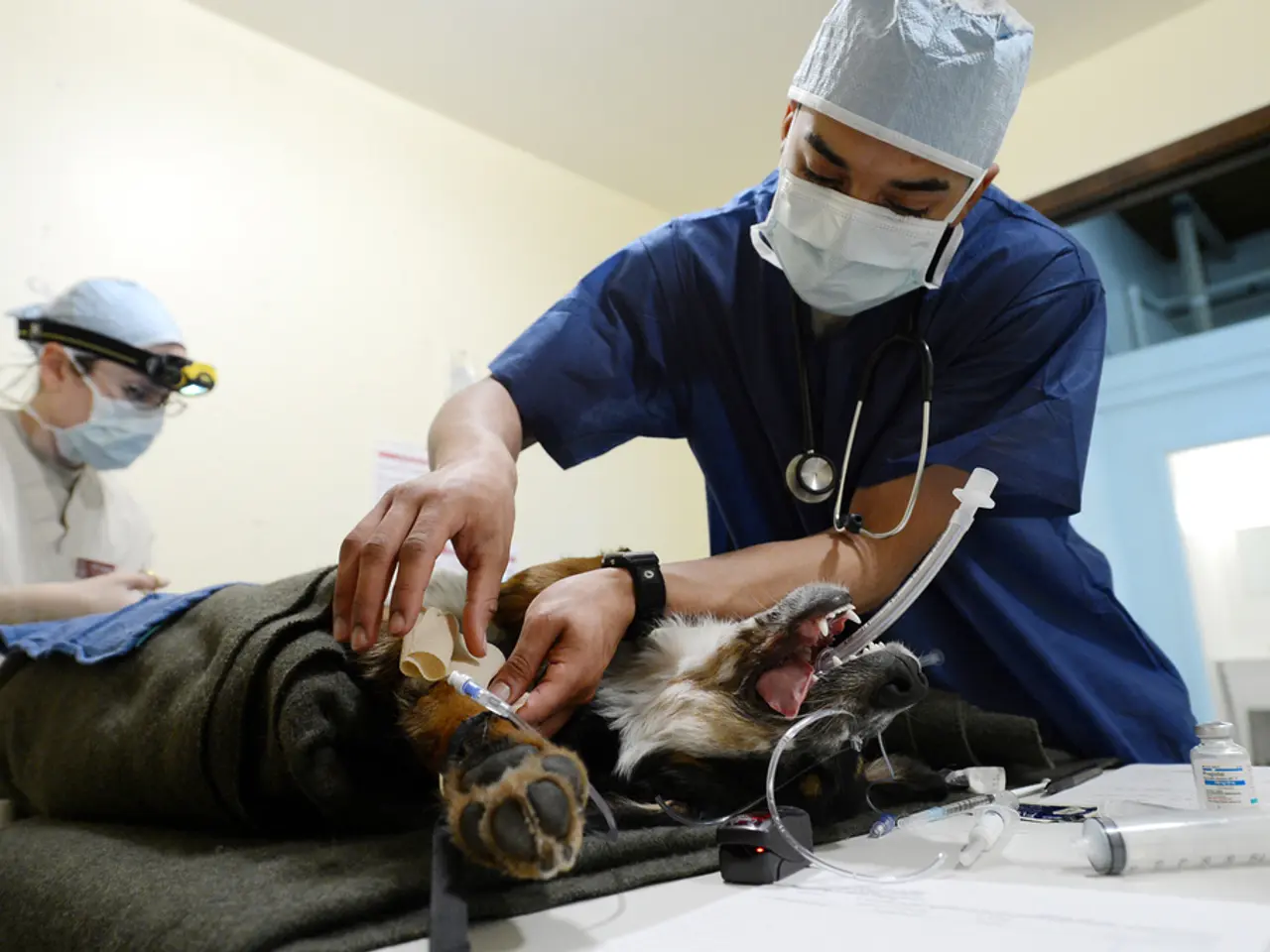Digital Twins in the Pharmaceutical Industry: A Step Towards Reducing Animal Testing and Clinical Trials
Pharmaceutical sector shifts testing methods, adopting a software alternative to animal testing
The use of digital twins in the pharmaceutical industry is revolutionizing the way drugs are tested and developed, offering a promising solution to reduce animal testing and clinical trials on humans.
The Role of Digital Twins in Reducing Animal Testing
Digital twins, virtual replicas of physical systems, can simulate human biological systems at various scales, from molecular to organ levels. This virtual modeling significantly reduces the need for in vitro and in vivo animal experiments during drug discovery and testing phases.
In silico pharmacology, the simulation of drug interactions, further minimizes reliance on animal models by predicting potential pharmacokinetic and pharmacodynamic profiles. The integration of multi-omics data and clinical history into digital twins allows for personalized disease models, reducing the necessity for one-size-fits-all preclinical testing models.
Contribution to Reducing Clinical Trials on Humans
Digital twins can simulate clinical trial processes, enabling researchers to anticipate potential complications and refine trial protocols before human exposure. Predictive modeling helps optimize trial designs and reduce the number of human participants needed.
Probabilistic patient models, created by digital twins, help design more adaptive and efficient clinical trials. These models can predict how patients are likely to respond to treatments, allowing for more personalized and effective trial strategies.
Regulatory agencies are increasingly providing guidance on the use of digital twins, emphasizing transparency, reproducibility, and interpretability. This guidance supports the development of reliable models that can inform clinical trial design and reduce reliance on traditional control groups.
A Promising Future
Innovations like Hesperos' organ-on-a-chip digital twins further demonstrate the potential to predict human drug responses using entirely human-based platforms. These advancements aim to accelerate therapeutic development without the need for extensive animal testing.
Sabine Scheunert's Perspective on Germany's Technology Scene
Sabine Scheunert, an expert in the automotive industry and head of the Central Europe region at Dassault Systèmes, recently shared her views on Germany's technology scene in the "So techt Deutschland" podcast. In the interview, she emphasized the need for action instead of relying on PowerPoint presentations and found hope in the German Mittelstand as the largest source of innovation.
The podcast, hosted by ntv moderators Frauke Holzmeier and Andreas Laukat, discusses the state of Germany's technology scene with entrepreneurs, investors, politicians, and business leaders. The interview also delves into the automotive industry, robots, and innovations.
The podcast can be found in the ntv app, on RTL, Amazon Music, Apple Podcasts, Spotify, and in the RSS feed. For questions regarding the podcast, please send an email to [email protected].
[1] Digital Twins for Drug Discovery and Development, Nature Reviews Drug Discovery (2020) [2] Hesperos: Organ-on-a-Chip Digital Twins, Hesperos (2021) [3] Digital Twins for Clinical Trials: A Review, Pharmaceutical Research (2021) [4] Digital Twins in Pharmaceutical Research and Development, MDPI (2020)
The implementation of digital twins in the pharmaceutical industry, as outlined in resources such as [1], [2], [3], and [4], could potentially contribute to the revision of community policy regarding animal testing and employment policy in the scientific and technological sectors. Moreover, with advancements like organ-on-a-chip digital twins from Hesperos ([2]), science and technology may offer alternatives to employment policies that involve in vivo experiments, contributing to both animal welfare and the reduction of clinical trials on humans.




